
Biofuels Bioproducts & Biorefining-Biofpr
metrics 2024
Catalyzing Change in Biofuels and Bioproduct Development
Introduction
Biofuels Bioproducts & Biorefining (Biofpr), published by WILEY, stands at the forefront of research dedicated to the sustainable production and utilization of biofuels and bioproducts. With its robust impact, as evidenced by its placement in the Q2 quartile across both Bioengineering and Renewable Energy, Sustainability and the Environment categories, this journal provides a vital platform for disseminating high-quality research aimed at advancing bio-refining technologies and bio-product innovations. Covering a wide range of topics from production methodologies to environmental impacts, Biofpr serves as an essential resource for researchers, professionals, and students eager to contribute to the evolving领域 of renewable energy solutions. Its consistent performance in the Scopus rankings further underscores its importance, ranking #78 in Renewable Energy and #51 in Chemical Engineering, making it an indispensable read for those committed to sustainability and scientific advancement in the biofuels sector.
Metrics 2024
 0.75
0.75 3.20
3.20 3.90
3.90 102
102Metrics History
Rank 2024
Scopus
IF (Web Of Science)
JCI (Web Of Science)
Quartile History
Similar Journals
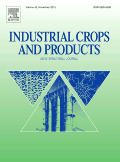
INDUSTRIAL CROPS AND PRODUCTS
Exploring Innovative Solutions in Industrial Crop ResearchINDUSTRIAL CROPS AND PRODUCTS is a premier journal dedicated to the field of agronomy and crop science, published by Elsevier. With an impressive impact factor that places it in the Q1 quartile for its subject category, this journal ranks among the top 29 out of 406 in Agricultural and Biological Sciences, demonstrating its significance and influence within the academic community. Since its inception in 1992, it has been committed to disseminating high-quality research that advances the understanding of industrial crops and their applications. The journal is an excellent resource for researchers, professionals, and students who are keen to explore novel findings, methodologies, and approaches in crop diversification and product development. Although it does not currently offer open access options, it maintains a rigorous peer-review process to ensure that only the most impactful research is published. As it continues to grow and evolve through to 2024, INDUSTRIAL CROPS AND PRODUCTS remains a crucial platform for those looking to make significant contributions to the field.
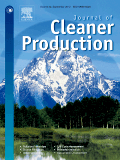
Journal of Cleaner Production
Pioneering Research in Environmental SustainabilityThe Journal of Cleaner Production, published by Elsevier Science Ltd, is a leading interdisciplinary journal dedicated to the development and dissemination of knowledge on environmental sustainability and cleaner production practices. With an impact factor that reflects its high relevance in the field, the journal is recognized as a Q1 publication in key categories including Environmental Science, Industrial and Manufacturing Engineering, Renewable Energy, and Strategy and Management as of 2023. This prestigious journal has been a platform for groundbreaking research since its inception in 1993 and continues to shape the dialogue around sustainable practices in various sectors. Researchers and professionals across disciplines can access its wealth of insights, which are critical for driving the transition towards more sustainable production and consumption models. The journal’s rigorous peer-review process ensures that only high-quality research is published, making it an essential resource for academics, industry leaders, and policymakers committed to advancing cleaner production methodologies.

BIOTECHNOLOGY AND BIOPROCESS ENGINEERING
Transforming Ideas into Bioprocess BreakthroughsBIOTECHNOLOGY AND BIOPROCESS ENGINEERING, published by the Korean Society for Biotechnology and Bioengineering, is a prominent journal in the fields of applied microbiology, biotechnology, bioengineering, and biomedical engineering. Since its inception in 1996, this journal has served as a vital platform for researchers and professionals, facilitating the dissemination of cutting-edge research and innovative applications related to bioprocesses and biotechnology systems. With an ISSN of 1226-8372, this journal is ranked within the Q3 quartile across several categories, demonstrating its relevance and impact in the academic community. Although it operates under traditional access modalities, the journal strives to provide quality and timely insights into the advancements in bioprocess technology and microbial applications, fostering a collaborative environment for knowledge exchange. Notably, it is indexed with a respectable presence on Scopus, making it a valuable resource for students and professionals seeking the latest developments in biotechnology. For more details, kindly refer to the Korean Science Technology Center, #704 Yeoksam-Dong, Gangnam-Ku, Seoul 135-703, South Korea.
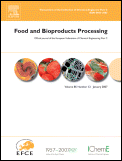
FOOD AND BIOPRODUCTS PROCESSING
Fueling the future of biochemistry and biotechnology in the food industry.FOOD AND BIOPRODUCTS PROCESSING, published by Elsevier, is a leading journal dedicated to advancing the fields of biochemistry, biotechnology, chemical engineering, and food science. With a strong impact factor and robust rankings—Q2 in Biochemistry and Biotechnology, and Q1 in Food Science—it serves as an essential resource for researchers, industry professionals, and students alike. The journal focuses on innovative research and practical applications in the processing of food and bioproducts, spanning from raw material transformation to product development. By fostering the exchange of knowledge and ideas, FOOD AND BIOPRODUCTS PROCESSING aims to enhance food quality and sustainability while addressing global challenges in food security and environmental impact. With an accessible format and a diverse pool of contributors, this publication stands as a vital platform for groundbreaking studies, making significant contributions to the advancement of technology and practices in food processing and production.

ChemBioEng Reviews
Unveiling Breakthroughs in Process ChemistryChemBioEng Reviews is a premier academic journal dedicated to advancing the fields of biochemistry, bioengineering, and chemical engineering. Published by WILEY-V C H VERLAG GMBH, this journal serves as an essential platform for researchers and professionals seeking to disseminate groundbreaking insights and innovations. With a remarkable impact factor and a solid reputation, it is ranked in the top quartile (Q1) across multiple disciplines, including Biochemistry, Bioengineering, and Industrial and Manufacturing Engineering. The journal's comprehensive scope covers the synthesis, analysis, and application of bioengineered solutions, making it a vital resource for anyone involved in process chemistry and technology. With an unwavering commitment to high-quality scientific discourse from 2014 to 2024, ChemBioEng Reviews is not only pivotal for the academic community but also contributes to industry advancements in filtration, separation processes, and the intersection of chemical and biological engineering.
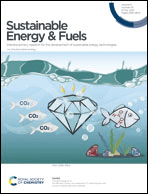
Sustainable Energy & Fuels
Transforming Energy Engineering for Global SustainabilitySustainable Energy & Fuels is a leading journal published by the Royal Society of Chemistry, dedicated to advancing knowledge in the fields of energy engineering, fuel technology, and renewable energy solutions. With its ISSN of 2398-4902 and notable Q1 status in both Energy Engineering and Power Technology as well as Fuel Technology, this journal ranks impressively in the Scopus database, ensuring a strong platform for disseminating impactful research. The journal spans a comprehensive scope aimed at addressing the global challenges of sustainable energy, including innovative methodologies and technologies that promote environmental sustainability. Although it operates under a traditional access model, the journal is committed to providing high-quality content that engages researchers, professionals, and students alike. With significant contributions expected through 2024, Sustainable Energy & Fuels stands at the forefront of facilitating scholarly communication, inspiring advancements in energy technologies that align with sustainability goals.

Biomass Conversion and Biorefinery
Empowering innovation in renewable energy and biorefinery technologies.Biomass Conversion and Biorefinery, published by Springer Heidelberg, is a prominent peer-reviewed journal dedicated to advancing the field of renewable energy and sustainable practices. With ISSN 2190-6815 and E-ISSN 2190-6823, this journal serves as a vital platform for researchers, professionals, and students focusing on the valorization of biomass and the development of biorefinery technologies. Notably, it holds a respectable impact factor and is categorized in the Q2 quartile of Renewable Energy, Sustainability and the Environment, indicating its strong influence within the academic community. Covering a wide range of topics from biomass feedstock characterization to innovative bioconversion processes, the journal aims to facilitate interdisciplinary collaboration and knowledge exchange. As it spans in scope from 2011 to 2024, audience members can benefit from timely research insights that contribute to sustainable energy solutions in a world increasingly focused on environmental stewardship.

Bioresources and Bioprocessing
Driving Innovation in Renewable Energy and BioprocessingBioresources and Bioprocessing is an esteemed open-access journal published by SPRINGER HEIDELBERG, dedicated to the innovative fields of biomedical engineering, biotechnology, food science, and renewable energy. Since its inception in 2014, the journal has rapidly established itself as a leading platform for high-quality research, boasting a Q2 ranking in key categories such as Biomedical Engineering and Biotechnology, and an impressive Q1 status in Food Science for 2023. With robust Scopus rankings placing it in the top percentiles across multiple disciplines, Bioresources and Bioprocessing serves not only as a conduit for original research but also for critical insights into sustainable bioprocessing techniques that contribute to environmental stewardship. It is particularly aimed at researchers, professionals, and students committed to advancing knowledge in the bioprocessing sphere, promoting evidence-based innovations that leverage biological resources for diverse applications. Emphasizing open access, the journal ensures that cutting-edge research is readily available to a global audience, reinforcing its commitment to scientific communication and collaboration.
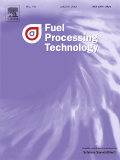
FUEL PROCESSING TECHNOLOGY
Advancing sustainable fuel solutions for a greener tomorrow.FUEL PROCESSING TECHNOLOGY, published by Elsevier, is a highly regarded scholarly journal dedicated to advancing the field of fuel processing and technology. With an impressive Q1 ranking in major categories such as Chemical Engineering, Energy Engineering, and Fuel Technology, this journal serves as a vital resource for researchers, professionals, and students alike, offering cutting-edge research and comprehensive reviews since its inception in 1977. Boasting a Scopus ranking that places it within the top 10% of its field, FUEL PROCESSING TECHNOLOGY is committed to disseminating innovative findings and methodologies that are crucial for the development of sustainable fuel technologies. In line with its commitment to accessibility, the journal will transition to Open Access status starting in 2024, thereby broadening the reach and impact of valuable research. Located in Amsterdam, Netherlands, the journal is strategically positioned to foster global collaboration and dialogue, making it an essential platform for scholars dedicated to the critical challenges in energy and environmental sustainability.
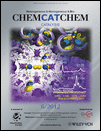
ChemCatChem
Catalyzing Knowledge in the Heart of Chemical Science.ChemCatChem is a leading international journal published by WILEY-V C H VERLAG GMBH that has been making significant contributions to the fields of catalysis, inorganic and organic chemistry, as well as physical and theoretical chemistry since its inception in 2009. With an established reputation for excellence, this journal holds commendable rankings in various categories, including Q1 in Inorganic Chemistry and Q1 in Organic Chemistry, demonstrating its pivotal role in advancing scientific knowledge and innovation. Notably, it has achieved a high Scopus ranking, securing 10th place out of 79 in Inorganic Chemistry, among others, showcasing its influence and quality. Although open access options are not available, the journal offers cutting-edge research articles, reviews, and insights that are vital for researchers, professionals, and students aiming to stay at the forefront of chemical science. With its address rooted in Weinheim, Germany, and convergence projected to continue until 2024, ChemCatChem remains a dynamic platform for disseminating vital advancements within the chemical community.